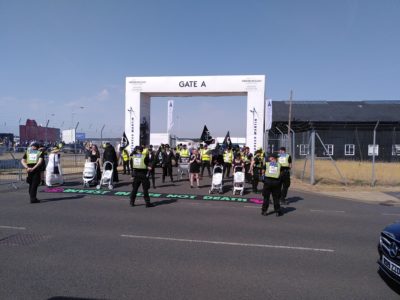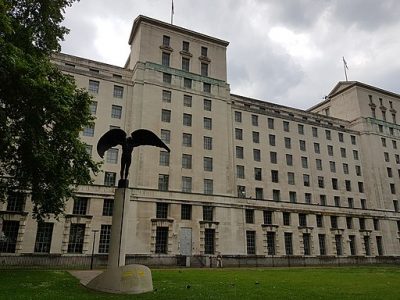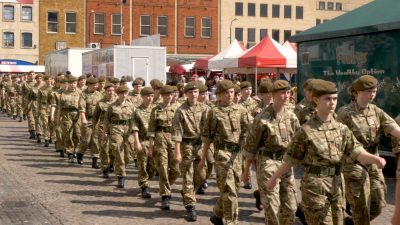More military days in schools
ForcesWatch comment
This year over 550 schools around the country have had a Red, White and Blue Day on 11th October, which involves pupils raising money for three military charities by wearing red, white and blue clothing (the colours of the Union flag), or holding another fundraising event.
Whilst the military charities may be funding valuable services for armed forces families, the method of fundraising in schools is very questionable. Is this patriotic celebration of the armed forces, and trivialising of war (for example getting primary school students to pretend to be soldiers) appropriate within schools? Whilst the day is notionally about ‘what life is like for the thousands of Service children in the UK’, it looks more like just another opportunity for school children to be be won over with military hardware or have to listen to armed forces presentations ‘about service and life in the Armed Forces.’
Was there time for discussion or reflection on Red, White and Blue Day about the real effect of war on service children, as well as those serving, or wider issues such as the ethics of war? How do students from countries that have recently experienced – or are experiencing – conflict feel when war is trivialised or the focus reverts again to the Second World War, which has become a hollow symbol of Britishness, with much of the reality of it forgotten?
There are an increasing number of special days or commemorative periods in schools dedicated to the military or the armed forces: Camo Day, Armed Forces Day, Uniform to Work Day (for reservists), Remembrance events and the poppy appeal and National Heroes Day. While the latter widens the possibility of who a hero can be – not just military people (although quite a few of these are listed) but also firefighters, Nelson Mandela, Aung San Suu Kyi and others – it still just raises money for the military charity Help for Heroes.
There is no other group in society for which there exists half a dozen different occasions throughout the year when schools are asked to honour them. School children should not be called upon to show unqualified support for the armed forces and they should not be seen as a fundraising opportunity in place of inadequate state provision for those that are sent into war and their families.
See more: military in schools/colleges,
Like what you read?
> Sign up for our newsletter or blog notifications
> Support our work – from just £2 a month










